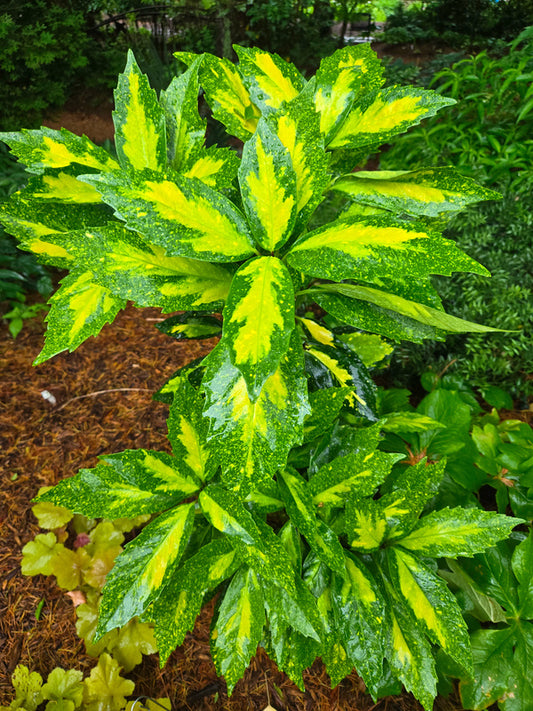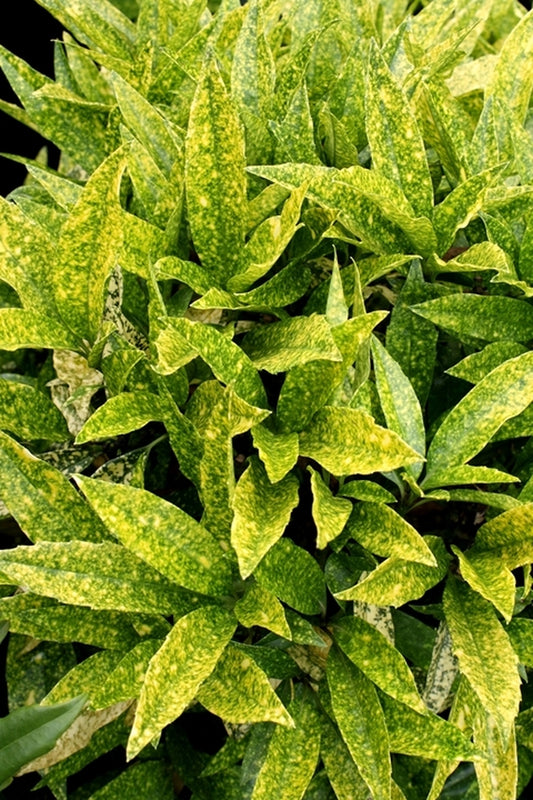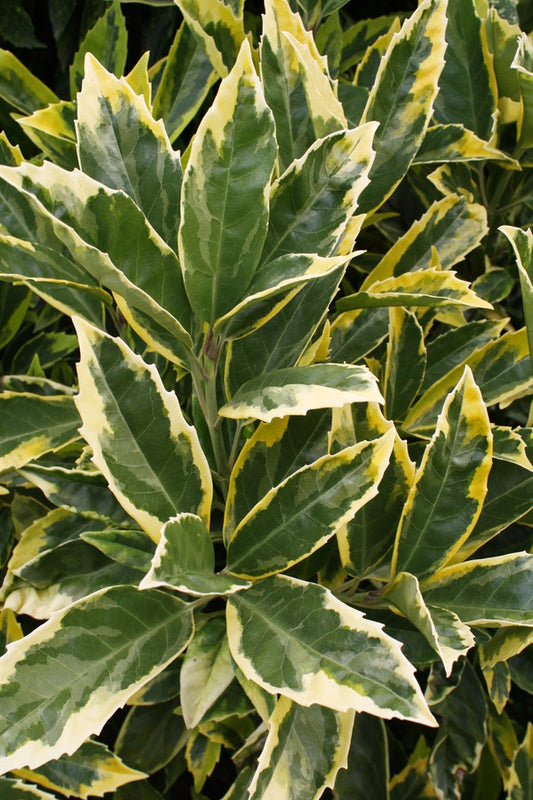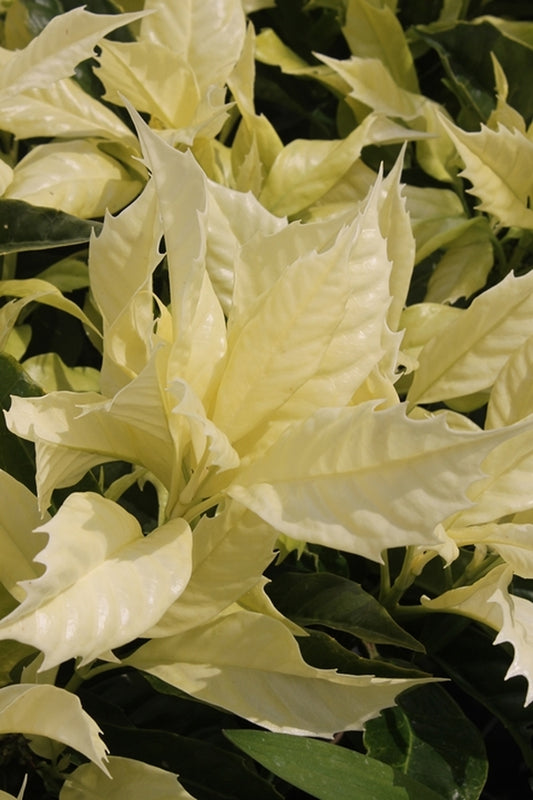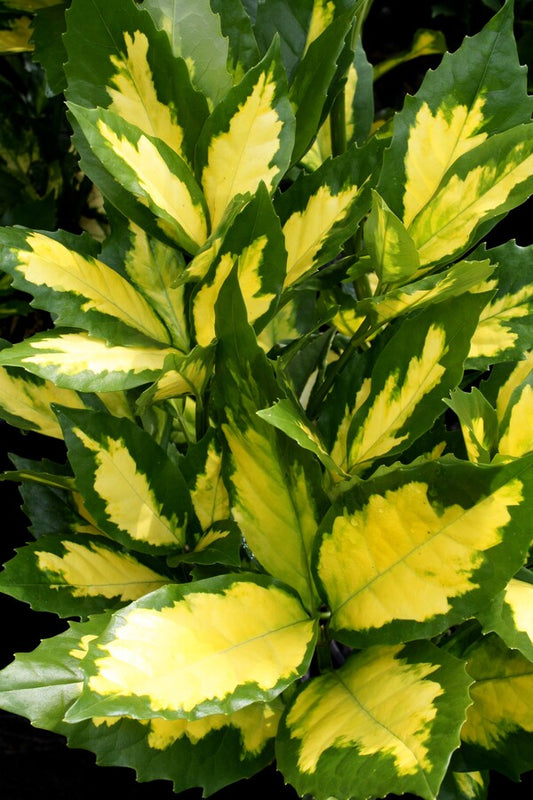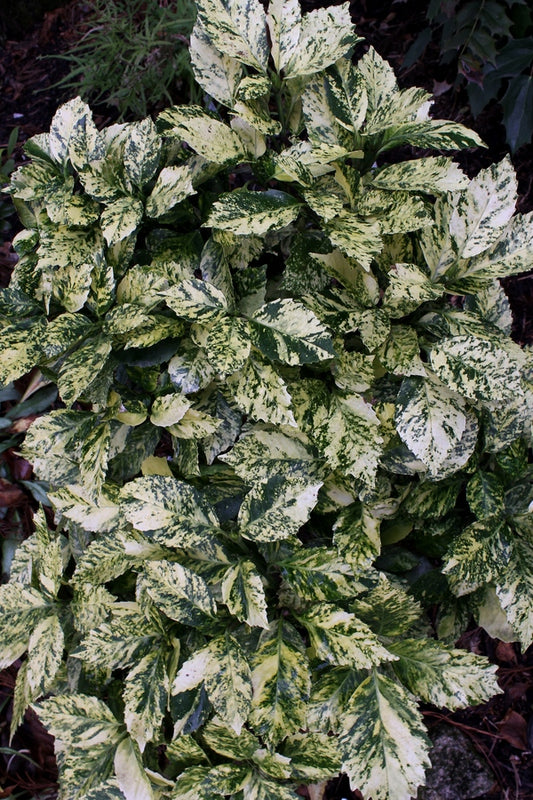Aucuba is popular because of its large shiny evergreen leaves, which are often variegated. Aucuba plants prefer part-shade, regular watering and well-drained soil.
-
Aucuba japonica 'Katoaba'
Item #: 16877
Zones: 7a to 9b
Dormancy: Evergreen
Height: 60" tall
Culture: Part Sun to Light Shade
Origin: Japan
Pot Size: 3.5" pot (24 fl. oz/0.7 L)
Regular price $32.00Regular priceUnit price per -
Aucuba japonica 'Lemon Flare'
Item #: 1388
Zones: 7a to 9b
Dormancy: Evergreen
Height: 48" tall
Culture: Part Sun to Light Shade
Origin: Japan
Pot Size: 3.5" pot (24 fl. oz/0.7 L)
Regular price $32.00Regular priceUnit price per -
Aucuba japonica 'Limbata'
Item #: 33
Zones: 7a to 9b, at least
Dormancy: Evergreen
Height: 48" tall
Culture: Part Sun to Light Shade
Origin: Japan
Pot Size: 3.5" pot (24 fl. oz/0.7 L)
Regular price $29.00Regular priceUnit price per -
Aucuba japonica 'Natsu-no-Kumo'
Item #: 2736
Zones: 7a to 9b
Dormancy: Evergreen
Height: 72" tall
Culture: Part Sun to Light Shade
Origin: Japan
Pot Size: 3.5" pot (24 fl. oz/0.7 L)
Regular price $29.00Regular priceUnit price per -
Aucuba japonica 'Ooba Nakafu'
Item #: 3134
Zones: 7a to 9b
Dormancy: Evergreen
Height: 60" tall
Culture: Part Sun to Light Shade
Origin: Japan
Pot Size: 3.5" pot (24 fl. oz/0.7 L)
Regular price $32.00Regular priceUnit price per -
Aucuba japonica 'Suruga Benten'
Item #: 9715
Zones: 7a to 9b
Dormancy: Evergreen
Height: 48" tall
Culture: Part Sun to Light Shade
Origin: Japan
Pot Size: 3.5" pot (24 fl. oz/0.7 L)
Regular price $32.00Regular priceUnit price per
More Information About Aucuba
Aucuba (which is spelled by some as Acuba) is a genus that traditionally held 3 species (Aucuba japonica, Aucuba chinensis, and Aucuba himalaica) but which has recently been expanded to 10 species. Aucubas are shrubs or small trees native to Asia from the Himalayas in the west, through China and into Japan and South Korea. The name aucuba is an anglicization of the Japanese word 'aoki' which means 'blue tree'. Originally used as medicinal plants, aucubas are now primarily grown as ornamental plants.
Aucuba is popular because of its large shiny evergreen leaves, which are often variegated, and its bright red berries which are only present on female plants if there is a male aucuba in the vicinity (except for a few cultivars like 'Rozannie' which has both male and female parts in every flower). Some of the popular cultivars are always female ('Crotonifolia', 'Gold Dust', 'Hillieri', 'Picturata', 'Salicifolia', 'Serratifolia', 'Sulphur', 'Sulphurea Marginata', 'Variegata'), or always male ('Mister Goldstrike', 'Crassifolia', 'Golden King', 'Lance Leaf') and some may be either sex. The only way to tell a male aucuba from a female one is to observe the small purple flowers. Flowers held close to the stem are female and flowers on an erect flower stalk and with four little yellow anthers are male.
Growing and Caring for Aucuba Plants
Aucuba is generally a carefree plant. It prefers part-shade, regular watering, and a well-drained soil. Once established, aucuba plants are fairly drought tolerant. However, aucubas that are in too much sun or experience severe drought will display black leaf splotches. Aucuba is one of the few plants that tolerates deep shade well. Our goal is to propagate several of the wonderful, but lesser known and rarely available special aucuba cultivars. When you are ready to buy an aucuba for your perennial garden, we hope you'll check out our list of aucuba for sale.
Check out Tony's aucuba blog posts to see pics of some of our own aucuba plants growing at the Juniper Level Botanic Garden.


